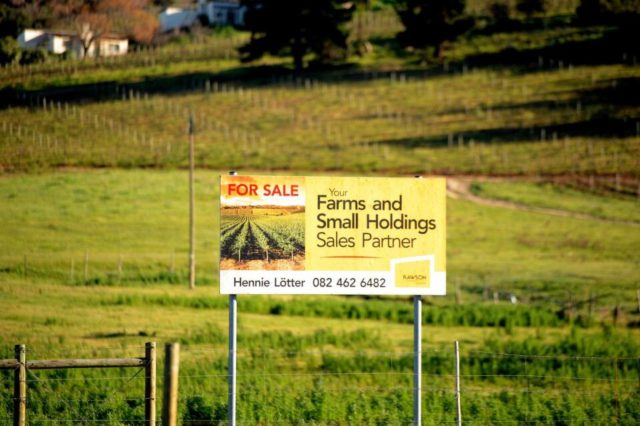Forging ahead with land expropriation without compensation could see South Africa experiencing unprecedented inflation and massive capital outflows.
DURBAN – FORGING ahead with land expropriation without compensation could see South Africa experiencing unprecedented inflation and massive capital outflows.
This is the view of leading academic Professor William Gumede, who was part of a panel discussion yesterday at the land summit organised by the DA.
The summit featured land rights activists, the agriculture sector, civil society and other interest groups. It focused on land reform, land expropriation without compensation, rural safety as well as farm attacks and murders.
The gathering comes as the debate rages on about proposed changes to Section 25 of the Constitution, which the ANC is pursuing as part of its land reform project.
Gumede, who is a governance specialist at Wits University, spoke about Algeria, Tanzania and Zimbabwe, countries that had proceeded with expropriation without compensation policies and the negative impact it had had on their economies.
“Such a policy undermines confidence from investors, and basically collapses the economic system and often leads to inflation and food insecurity. These countries were producing enough food for their people, and now they are net importers of food,” he said, warning against such a move in South Africa.
He noted that land was an emotive subject, and warned against using the issue for political populism.
Thembakazi Gwatyu, who represented the Gwatyu community in the Eastern Cape, told the summit how they watched helplessly as state-owned land in the Eastern Cape remained unused. She emphasised the need for individual land ownership.
“It is frustrating to live in a land that you do not own, you don’t have to go Zimbabwe to see what happens if the land is under state control, just go to the Eastern Cape,” said the land rights activist.
Other farmers echoed the sentiment of government inefficiency, pointing to government-owned farms that remained fallow and how they were contributing to a decline of farms’ values in Mpumalanga.
According to Limpopo farmer David Rakgase, ownership brought a sense of dignity and responsibility.
“If you do not have a piece of paper that proves your ownership of the property, then you can’t stop land invasion,” said the farmer, warning against government takeover of land.
Agri-SA’s Annelize Crosby stressed that the government’s proposed custodianship of the land would bring harm to all farmers and would threaten food security. She also lamented the government’s inability to implement many of its land reform policies, noting that a small portion of the Budget went to land reform.
“Expropriation without compensation will have negative unintended consequences, especially on food security,” she told the summit.
DA leader John Steenhuisen criticised the line followed by the ANC and EFF in the matter.
“The ANC government is not acting in the best interest of all the people of South Africa. They are only acting in their own pursuit of power, and in greed, and to the benefit of their cadres and cronies,” the DA stressed.
The DA indicated that it would challenge the many procedural defects, especially in terms of public participation, in court.
THE MERCURY








